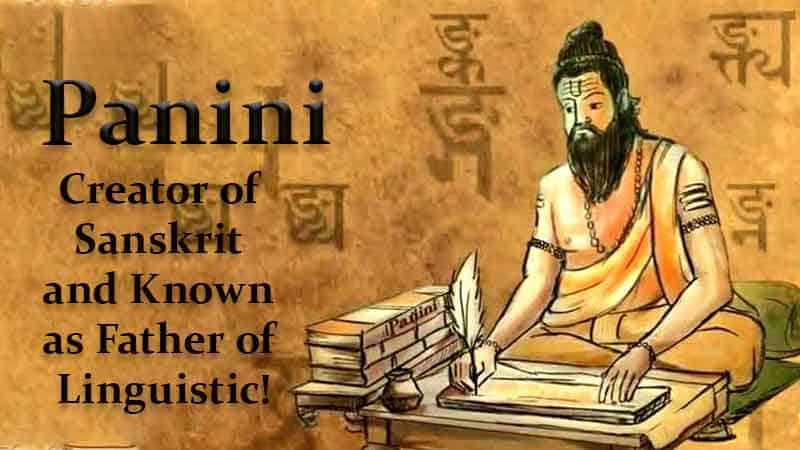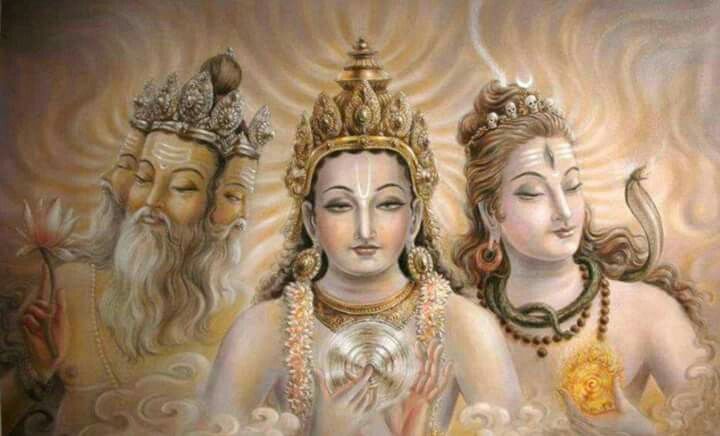
Pāṇini: The Father of Linguistics and Master of Sanskrit Grammar
Introduction:
Pāṇini, a revered scholar in ancient India, has left an indelible mark on the field of linguistics and Sanskrit grammar. His seminal work, Aṣṭādhyāyī, a comprehensive treatise on Sanskrit grammar, revolutionised linguistic analysis and laid the foundation for the development of linguistic theories. Pāṇini's contributions have garnered him the title of "first descriptive linguist" and "the father of linguistics," with his ideas influencing scholars for centuries.
The Aṣṭādhyāyī: An Unparalleled Work on Sanskrit Grammar:
Pāṇini's Aṣṭādhyāyī is a remarkable text consisting of 3,996 verses or rules on linguistics, syntax, and semantics. Divided into eight chapters, this sutra-style treatise became the foundational text of Vyākaraṇa, a branch of the Vedanga, which deals with the scholarly disciplines of the Vedic period. Pāṇini's systematic and meticulous analysis of Sanskrit grammar paved the way for the development of Classical Sanskrit and influenced the language's literature and learning for over two millennia.

Pioneering Linguistic Analysis:
Pāṇini's approach to grammar was groundbreaking and ahead of its time. His work introduced the concept of a generative and descriptive theory of grammar, employing metalanguage and meta-rules. The level of sophistication displayed in his analysis of noun compounds is still influential in contemporary linguistic theories of compounding in Indian languages. Pāṇini's contributions to morphological analysis surpassed any equivalent Western theory until the 20th century.
Impact on Linguistics:
Pāṇini's groundbreaking ideas did not go unnoticed in the world of linguistics. European scholars discovered and published his work in the nineteenth century, leading to his recognition as the "first descriptive linguist." His insights and methods profoundly influenced prominent linguists such as Ferdinand de Saussure and Leonard Bloomfield. Pāṇini's systematic and scientific approach to grammar became a source of inspiration for the development of linguistic theories and methodologies.

Commentaries and Influence:
The significance of Pāṇini's Aṣṭādhyāyī is evident in the multitude of commentaries it attracted over the centuries. Patanjali's Mahābhāṣya, a renowned commentary on Pāṇini's work, stands as a testament to its enduring impact. Scholars from various Indian religions, including Buddhism, were also drawn to Pāṇini's ideas and provided commentaries that further enriched the understanding and application of his grammatical principles.
Legacy and Enduring Significance:
Pāṇini's contributions to linguistics and Sanskrit grammar have stood the test of time. His work not only solidified Sanskrit as the preeminent Indian language for learning and literature but also influenced the study of language across the globe. Pāṇini's treatise, with its logical structure and mathematical model, has been compared to a Turing machine, emphasising its foundational role in computational linguistics.

Conclusion:
Pāṇini's Aṣṭādhyāyī remains a monumental achievement in the field of linguistics and Sanskrit grammar. His meticulous analysis, generative approach, and systematic methodology revolutionised linguistic theories and influenced scholars for centuries. Pāṇini's work continues to be celebrated as a testament to ancient Indian scholarship and stands as a testament to the power of human intellect in understanding and unravelling the complexities of language.
By Mamta Rajbhar
(The images used in this blog post are not owned by Anime Devta, they are just to help the readers)

